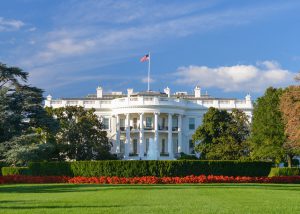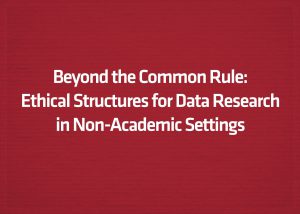Rise of the Drones
This morning, the Center for Strategic and International Studies presented a panel conversation on some of the challenges – and opportunities – around domestic drone use. After following the issue for years, it would appear that drone policy’s day has finally arrived. According to the FAA, nearly 4,500 comments were submitted in response to the agency’s proposed rulemaking for drones, or unmanned aircraft systems (UAS), and the NTIA received over 50 comments specifically on privacy issues around drones.
While the Future of Privacy Forum continues to think about how best to address these issues, there is little question that domestic and commercial drone use offer tremendous societal benefits. At the panel, Brian Wynne, President of AUVSI, a leading robotics trade association, explained that drones will create over $83 billion in economic activity in their first decade, and promise to generate tens of thousands of jobs. Wynne suggested that it is “almost impossible to anticipate all the different ways we can utilize UAS moving forward.”
Even the ACLU’s Jay Stanley, who remains concerned about law enforcement’s eagerness to use drone technology, admitted that drones could be a “generative technology” in the private sector. He noted that privacy issues on the commercial side are incredibly complicated, not only implicating the First Amendment but perhaps lacking the sort of privacy-invasive incentives that could exist in law enforcement. Indeed, his “nightmare scenario” is a world where drones could be used for persistent surveillance, while members of the public, including journalists and entrepreneurs, will be hamstrung in their ability to use UAS technologies.
Stanley applauded the “outpouring” of interest on privacy with drones. He echoed notions that drones are more salient among the public. “It’s not hard to see the privacy issues with a drone with a camera on it,” he said. “Things like big data are more abstract.”
Adam Cox, from CSIS and an advisor to DHS’ Advanced Research Projects Agency (HSARPA), suggested that privacy and drones presents a “technically sexy problem.” “A lot of people are interested [in the technology],” he explained, and because drones allow everyone to engage in flight, “people are going to want to put new things on this.” He encouraged technologists to work hand-in-hand with policymakers, recommending both geofencing solutions and education efforts toward both manufacturers and operators of drones.
On that front, the Future of Privacy Forum is eager to engage. Last week, we filed comments with the NTIA on our thoughts on privacy and domestic drone use. A wide variety of individuals and organizations also submitted comments ahead of a new drone privacy multistakeholder effort, and it is clear that there are a number of ideas in play for how to address data collection and use by drones, as well as the address public concern about a loss of privacy from above.
In addition to several procedural recommendations, our comments focus on the value of transparency and training to address privacy concerns. We recognize that drones present different types of transparency challenges, both in terms of general practice and then individual drone flight. In both instances, we support conversations about what sort of information could be communicated to consumers in a way that does not place significant burdens onto individual UAS operators. Further, while drone operation will require at least some degree of safety training, we are hopeful some type of privacy training can be incorporated into that.
As today’s panel and all these comments suggest, there is much work to be done to figure out how general privacy principles can be applied to a diverse array of UAS technologies. While we support a technology neutral approach, it is clear that consumers, businesses, and policymakers all need to have a voice in determining how commercial drones can and should take flight.
-Joseph Jerome, Policy Counsel



